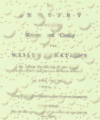 Although Kant was not directly interested in economics as an independent discipline, he was an early reader of Adam Smith’s work, long before it gained popularity in German culture. Scholars who have addressed this topic have found more than one implicit reference to Smith in Kant’s texts.
Although Kant was not directly interested in economics as an independent discipline, he was an early reader of Adam Smith’s work, long before it gained popularity in German culture. Scholars who have addressed this topic have found more than one implicit reference to Smith in Kant’s texts.
However, Kant did not embrace a “naturalistic” view of property and the market. Despite their very different theoretical approaches, Kant’s redefinition of ius in re (real right) is surprisingly similar to David Graeber’s: “an understanding or arrangement between people concerning things.” Such an interpersonal nature of property implies that it can only overcome its temporariness in a civil constitution.
In other words, Kant’s property does not emerge fully formed from the state of nature. Rather, it may and should be politically discussed. The constitutional pact can also publicly “de-reify” entities that were treated as things in the status quo ante. For instance, states that were acquired and exchanged as if they were objects of property can be recognized as societies of human beings and treated as such.
A similar, albeit more radical, de-reification can be found in the Metaphysics of Morals, where Kant places books and money in the sphere of personal rights, i.e., the right to obtain services from people.
Regarding money, Kant not only quotes Adam Smith almost verbatim, but also uses his vocabulary. However, his conjectural history of the origin of money differs from Smith’s, producing an almost chartalist theory that connects money to political imposition and human labor rather than to a spontaneous market process.
The important yet little-explored comparison between Kant and Smith can help us to determine if a political-economic theory is hidden in the fourth preliminary article of Perpetual Peace, which deals with the use and abuse of public debt. More broadly, it also raises a more foundational question: how could economics be or become republican, rather than just political?

 RSS 2.0
RSS 2.0 Mastodon
Mastodon